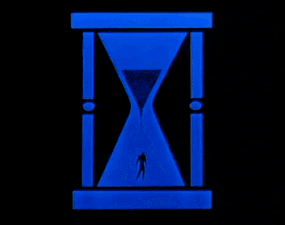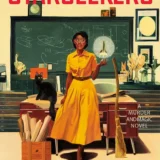Earlier in the week, speculative fiction author Chuck Wendig made a blog post called, Dear Publishers, where he listed a number of changes he would like to see in the industry. He basically asked them to “straighten up” because he likes publishers and wants to work with them, but they must change some of their ways because authors now have more control than they have in the past. Similarly, Hugh Howey (best-selling hybrid author) wrote a post entitled, It’s the reader, Stupid which was inspired by a 3,000 word essay he wrote as a call to arms for everyone in publishing to focus on the reader. I also wrote a post on Jane Friedman’s blog, asking for publishers to work with authors to provide a means for readers to get a bundled ebook if they buy print books.
When I look at these three posts, we’re all saying the same thing: publishers, who have typically controlled a lot of power in the book dichotomy, are not keeping pace with satisfying readers…and writers, who are focused on reader’s best interests, are being hampered by their publisher’s policies. I think Chuck and Hugh share my opinion that publishers bring value, and we want to work with them. We are making these suggested changes to help them remain vital and relevant in an industry going through an incredible, game changing transformation.
What kinds of things are we talking about? Well here is my Dear Publisher list that focuses on the needs of readers:
- Eliminate DRM – It doesn’t prevent piracy (pirates can strip DRM with next to no effort) and the only ones DRM hurts are those who legitimately purchase but can’t read their books on multiple devices.
- Bundle ebooks with print copies – Amazon is the 800 lb gorilla and they have solved this for many sales with the introduction of the MatchBook program. But we don’t know how many titles from the big-five will be enrolled. Also will they charge for the ebook ($0.99 – $2.99) or make them free? I’ve asked to extend this paradigm further. By allowing authors to email free ebooks to customers who provide a print book receipt, we can extend the bundling regardless of where the book was purchased. This would be good for Barnes and Noble, BooksAMillion, and the independent bookstores allowing them to compete against what some fear is a company with too much power in the industry.
- Provide discounted print books for those who bought ebooks – Many readers will “test” an author’s work by buying the ebook. Then, if they fall in love with it, they’ll want a physical copy on their shelf or for loaning to friends and family. There isn’t enough profit in the print book to give them full credit for the ebook, but at the very least they shouldn’t have to pay full-price for something they already own. There should be two print prices…a lower one for those who have already bought the ebook. This is essentially the opposite of the MatchBook program and I’m sure Amazon will have something like this soon. But we don’t have to wait for Amazon. Again, sell direct (either through an author’s website or a site like Bookish, and offer a discount with an ebook purchase receipt).
- Provide multiple ebook formats – Just as DRM prevents me from reading on different devices, formats are also bothersome. If I buy the ebook I should be able to get a .mobi (for my kindle), .epub (for my nook), and .pdf to read on my ipad or computer. They can even increase their profits by cutting out the 30% the distributors (Amazon, ibookstore, Barnes and Noble) by selling direct. It should be noted that Baen, Angry Robot, and Bookish allow for ebook sales, but there is room for improvement. Baen does this the best, Angry Robot only sells .epubs (which requires the customer to translate to .mobi with Calibre), Bookish locks the content in a propitiatory app that can only be used on an apple or android device. Let’s make this simple. Pay once and then download whatever format you want…smashwords does this by the way.
- Support ebook library lending – Publishers are woefully behind the times when it comes to ebooks and libraries. My publisher, Hachette, only recently got on board (May 2013!!) but they are still charging three times the primary physical book price even though the loans are limited to one patron at a time. If you REALLY want to combat piracy, make it cheap and easy for libraries to distribute your books. Authors will find new fans who will buy subsequent books, and they’ll provide essential word-of-mouth advertising. Don’t try to squeeze every cent out of the libraries, let them stretch their budgets and expand your author’s fan base for you.
- Fix ebook territory restrictions – Readers outside the US are constantly frustrated by an inability to purchase legal copies. I actually had better distribution in some parts of the world when I was self-published then since going traditional. If nothing else…if your systems and infrastructures prevent you from selling a right that you own, give the author permission to sell it themselves in that market. When you get your act together, you can take over the distribution, but until then…why lose the sale and frustrate the reader?
- Price ebooks reasonably – Of course, defining “reasonable” is a tough nut to crack. Some say never over $9.99, and while I see their point, I do believe in letting the market decide such things. The books that come out at the $12.99 – $14.99 are generally bestsellers and by definition (they sell many copies) it is an indication that the price point is appropriate. But…publishing has a long-standing history of higher prices for front list (new titles) and reduced prices for back list (older works). In print this was done by having a hardcover priced ($25 or so) on day one then later releasing a mass market paperback for $6.99 – $7.99. So, to me it seems that a similar pricing should be adopted for ebooks. For those that can’t wait…let them pay a premium, but after six-months or a year reduce the price and those that found the initial price too high will turn into customers at the lower one.
- Release all formats simultaneously – Holding back an ebook to protect the hardcover sales just isn’t a way to treat your customers with respect. Again, stop trying to squeeze every cent out of each patron, and instead worry about providing choices so they can buy what they want to buy. Hugh took this concept a step further when he and Simon & Schuster released the hardcover and trade paperback of Wool simultaneously. The thought process was collectors would buy the hard covers and those with limited funds would buy the paperbacks. The result? Both editions of the books hit the New York Times in the same week.
- Don’t artificially delay books – I know authors who turned in three books in a series all at once and yet they were still released a year apart. The authors begged and pleaded to get them out sooner, but the publishers felt that by spacing them out the sales would be higher. There are many people who won’t even start a series until all the books are released, and others will forget about the series with so much time elapsed between books. If they are done…release them. (BTW my publisher, Orbit is very good and doesn’t do this. They’ve released two series from me the first one was released in Nov 2011, Dec 2011, and Jan 2012. The second one came out in Aug 2013 and Sep 2013, so releasing books in back-to-back months isn’t an impossibility).
I agree with Hugh when he said:
Indie authors are maniacally focused on the reader, almost to the exclusion of anything else. Low prices, fun and interesting genres and styles, a direct relationship, frequent output, you name it. Indie authors are doing well because they know it’s all about the reader.
I also agree with Chuck when he said:
The business models must change. Authors are starting to drive the bus — sometimes, okay, yes, off the cliff, but that’s where you can help. But you can’t help if the relationship isn’t equitable. If it doesn’t make sense.
What I glean from both of these comments is that authors want to work with publishers, but some current policies are making that difficult. If publishers don’t change, if they are standing in our way to satisfy the needs of our customers…the readers, we’ll be forced to find other routes (Amazon publishing, small-presses, self-publishing) because one way or another, we’re going to put the needs of the readers first.
Michael J. Sullivan is a speculative fiction writer who has written twenty-five novels and released nine. Eight of his fantasy books (The Riyria Revelations, and The Riyria Chronicles), were published by Hachette Book Group’s Orbit imprint. Hollow World, a science-fiction thriller was released by Tachyon Publications. The first four books of his new series, The First Empire, has sold to Random House’s Del Rey imprint, and the first book is scheduled to be released in the summer of 2016. He can be found on twitter, through his blog www.riyria.com, and on his facebook page and his publisher’s page for the series.








